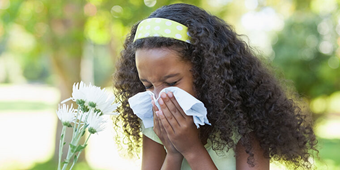20 Health Tips For 20-somethings

Answer a few questions and we'll provide you with a list of primary care providers that best fit your needs.
When you reach your 20s, your responsibilities increase. That includes taking charge of your health. We asked Dr. Michael Barrow for his advice on health habits to adopt in your 20s, to improve your chances of better health when you turn 30 … 40 … 50 … do we hear 100?
Here’s what Dr. Barrow recommends:
- Develop good health habits now – don’t put it off. “With good health habits, you can prevent or reduce the likelihood of health-impacting conditions later in life, such as obesity, high blood pressure, heart disease, or diabetes. Establishing good health habits in your teens or 20s is easier than having to begin these practices later on, or to have to break bad habits. A lot of people think, ‘I’m a teenager, I’m a 20-year-old, I can do whatever I want. I can stop it later on’ – whether it’s smoking or eating too much junk food. But the reality is that that’s a very difficult course to take.”
- How families can help. (This one’s for you, parents.) “In families that make mealtime a priority, the parents can observe what kids of all ages are eating, and they can model healthful eating and eat in moderation.” In the same way, Dr. Barrow adds, “When kids see mom and dad exercising, they’re more apt to do it themselves.”
- Establish a relationship with a primary care provider. A primary health care provider can help you on your health journey. When you see a provider on a regular basis, you’re more likely to “feel comfortable about talking about sensitive issues as well as being receptive to the advice your provider offers, because you develop a trusting relationship.” And by getting to know you over time, your doctor may be better able to pick up on signs of health concerns. Perhaps your doctor knows that your grandfather recently died and senses you’re having difficulty coping with the loss.
- Know your family health history. Knowing your family’s health history can help you and your primary care provider better manage your health – and be aware of potential hereditary risks to be watching for.
- Get regular health screenings. For women: Pap smears; HPV screening for the virus that causes genital warts, which can lead to cervical cancer; and breast self-exams. For men: testicular exams. For both: sexually transmitted disease testing, if sexually active. Talk with your health care provider about the screening schedule that’s best for you.
- Keep up with immunizations. This includes the HPV vaccine, for men and women.
- Be a people person. Developing and maintaining a work-life balance that allows room for friendships and relationships can have a positive impact on your mental and emotional health. And you can double up on the mental health-enhancing benefits when you and a friend or group exercise or engage in sports together (see 14).
- And be a numbers person. That is, keep tabs on numbers that affect your health, like weight, blood pressure, the amount of calories you consume, and cholesterol. Your health care provider can help you with this.
- Pay attention to the risk of a few extra pounds. “If you gain four or five pounds every year, it doesn’t seem like a lot necessarily, but at the end of 10 years, you’ve added 40 or 50 pounds – and in 15 to 20 years, you have 75 to 100 extra pounds that you’re carrying.”
- Remember, your metabolic rate slows as you age. That is, your body becomes less efficient in burning calories. This can lead to weight gain. The transition from teens to 20s also can result in added pounds when you become less active – “if you were participating in three seasons of high school sports and working out on a regular basis, then in your 20s you get into a sedentary job and you’re eating the same amount of calories.”
- Get enough sleep. For most 20-somethings that means seven to nine hours a night. But the transition from the teens to 20s can be jarring. “Often in the teen years and college years, you’re used to going to bed late and
getting up late. Then when you get into the working world, you can’t sleep in like you used to – yet you may still go to bed late.”
The resulting sleep deficit can be a big problem. “Sleep affects your ability to learn new information and to memorize and process information. And your reaction time is adversely affected by too little sleep (a big safety risk similar to drinking alcohol). In the long run, sleep makes a big difference in how you function and succeed in the adult world.” - Stay active. “The American College of Sports Medicine says that exercise is medicine, and that’s really true. If you’re exercising on a regular basis, that is going to help with a lot of health problems that are related to lifestyle.” And you don’t have to be an athlete. Dr. Barrow recommends starting with a walking program. The recommended aerobic exercise (walking, running, swimming, or bicycling) dose is 30 minutes a day, six days a week.
- Don’t forget weight training. “You don’t have to become a body builder, but a lot of Ys and community rec facilities have trainers who can show you weight training exercises that are helpful for daily life.”
- Schedule exercise. “You almost have to schedule exercise like you’re having a meeting. And exercising with somebody is also a way to help make sure you do it – to develop some accountability.”
- Focus on time, not distance for exercise. Shoot for the goal of exercising 30 minutes a day. “As you get in better shape, you’ll cover more distance than when you started.”
- Choose a life of healthful eating over trendy diets. Popular diets come and go. “They facilitate weight loss, but they work only as long as you are committed to it.” The more effective approach: adopt a life-time practice of eating a balanced, nutritional diet that includes vegetables, fruits, lean meats, whole grains, low-fat dairy, nuts and legumes, and non-tropical vegetable oils. And limit sweets.
- Practice portion control. There’s more to healthy eating than choosing nutritious food. There’s also limiting how much you eat. “You can gain weight or raise your risk for diabetes or high blood pressure — even if you’re eating incredibly healthy food — if you’re eating too much of it and become obese.”
- Mood impacts your overall health. “People who are struggling with depression, anxiety, and self-esteem issues really have a lot of difficulty with their health.” When depressed, you may not be motivated and may not see the value of taking care of your health. Exercise and friendships can help reduce your risk of mental and emotional health issues, and when you need it, your health care provider can help you get professional help.
- Don’t vape. “Vaping is a big problem for teens and 20-somethings. It’s not just flavored water. You don’t know what’s in vaping cartridges, and sometimes they’re modified” with substances such as THC, the primary psychoactive chemical in marijuana, that are untested, potentially putting your health and life at risk.
- Think twice about marijuana. “Even in states where marijuana is legal (medically or recreationally) it doesn’t mean your employer is going to think it’s OK.” Like alcohol, marijuana affects your reasoning,
decision-making, and ability to operate equipment safely. Also avoid smoking and other drugs, and limit your use of alcohol.
Answer a few questions and we'll provide you with a list of primary care providers that best fit your needs.
Source: Michael Barrow, MD, Premier Health Family Care – North




